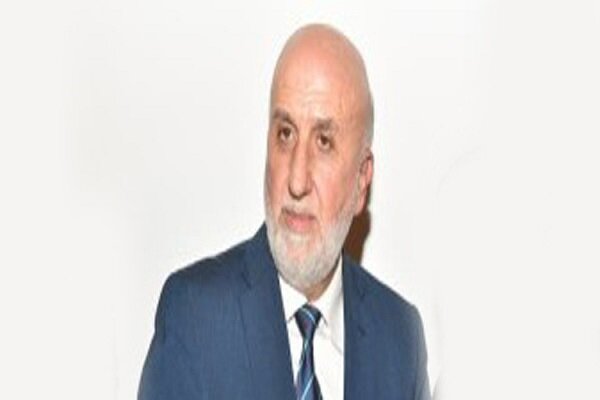Opportunities still exist to rebuild Lebanon: retired general

TEHRAN - A retired Lebanese brigadier general says there is still the opportunity to make the required reforms to restore confidence and ability in Lebanon by learning from mistakes and rise again from the ashes.
Lebanon's prime minister announced his government's resignation late on Monday. The resignation followed a huge explosion in downtown Beirut on August 4 that triggered public outrage amid endemic corruption.
"The solution is the unity of people in the country over one goal, which is to preserve civil peace and restore the trust of the whole world in the ability of the Lebanese to overcome difficulties," Baha Hallal tells the Tehran Times.
The text of the interview with Baha Hallal is as follows:
Q: What are the next scenarios in the aftermath of the resignation of the Diab government?
A: After August 4, it is not the same as before. Beirut, before August 4, was a glorious city on the Mediterranean coast. After the blast, the city was ruined and lost its prosperity. This is an event that will create a new phase. Here we are facing one of two scenarios:
First, respond to the visit of the French president; it is expected that President Aoun to immediately conduct parliamentary consultations to name a new prime minister who will be internationally and domestically acceptable to head a national unity government. In this scenario, the new government should begin serious work with Western countries and the International Monetary Fund to take the necessary actions to save Lebanon. In this context, the visit by David Hill (the United States Under Secretary of State for Political Affairs) implies the same direction as the visit by Macron.
In the second scenario, after parliamentary resignations amid uproar over the Beirut blast, which has led to violent actions, it will be difficult to choose a consensual personality between the Lebanese parties, as the gap widens between the rival March 8 and March 14 blocs.
However, a caretaker government will be incomplete due to the resignation of some of the ministers and protests with a new characteristic, as the August version differs from the October version, given the violent path that it is going to take.
Some parties express their political opposition by inciting people to pour into the street, which may push the country towards civil strife if it continues in this manner. Moreover, the caretaker phase will last longer in the shadow of a burning street.
Given the declaration of a state of emergency in Beirut for a period of two weeks, while the army is carrying out its tasks at all levels, the question is that will the country will resort to a military government to manage a transitional phase?
Q: How do you see the role of foreign interference in the resignation of government?
A: Some foreign countries have a fundamental role as the French president's visit marginalized Lebanese Prime Minister Hassan Diab. Macron said that he is not here to support the government, but he did not urge it to resign. I think that some of the parties supporting the government abandoned it at a critical moment.
There are parties influenced by Macron's visit, which led to resignations in the parliament, followed by resignations of the government.
The next foreign interference, I think, is not like 2005, rather it will show itself as a protective umbrella.
Q: Do you think that Lebanon as a state has collapsed or failed? Is there a way out of the crisis?
A: No, I do not see Lebanon as a collapsed and failed state. We are undoubtedly suffering harshly of successive economic and financial, as well as political and even health crises (Coronavirus).
However, the opportunity still remains to make the required reforms to restore confidence and ability by learning from mistakes and rise again from the ashes.
The solution is the unity of people in the country over one goal, which is to preserve civil peace and restore the trust of the whole world in the ability of the Lebanese to overcome difficulties, by undertaking the required reforms to fight corruption.
The new government should be capable of dealing with urgent problems while preserving the country's dignity and sovereignty.
Q: Do you expect chaos in the next phase in Lebanon, which may pave the way for the formation of a military government?
A: I do not believe that chaos on the street will lead to a military government. But I think that one of the proposed solutions is to form a government that includes military members whose mission is to calm the street and restore the citizen's trust in the state through effective accountability. To make this process a transitional phase, we need a dialogue between the country's different groups, with the addition of representatives of the protestors within this dialogue framework to create a new political consensus instead of generating successive crises.
Q: Do you think that the internationalization of the issue of the Beirut explosion will help Lebanon to overcome the current crisis?
A: Internationalization is a far-fetched matter and is not at least seriously discussed at the official levels. But if you mean international demands to play a role in this issue, I do not see any regional, Arab, or international enthusiasm for internationalization of the case. The conditions today are completely different from 2005 when Lebanon's former prime minister Rafic Hariri was killed in a bomb attack.
The internationalization of cases would not help Lebanon and its citizens, with what they hope for dialogue inside the country, to create realistic and constitutional opportunities for their children to live in dignity and freedom within the eternal homeland. It is noteworthy to remember that the international investigation of the Rafic al-Hariri case has lasted for a period of 15 years, without a final result.
Internationalization requires a consensus between the Lebanese constitutional mechanisms that are not available today, not to mention the international and regional conditions.
Leave a Comment